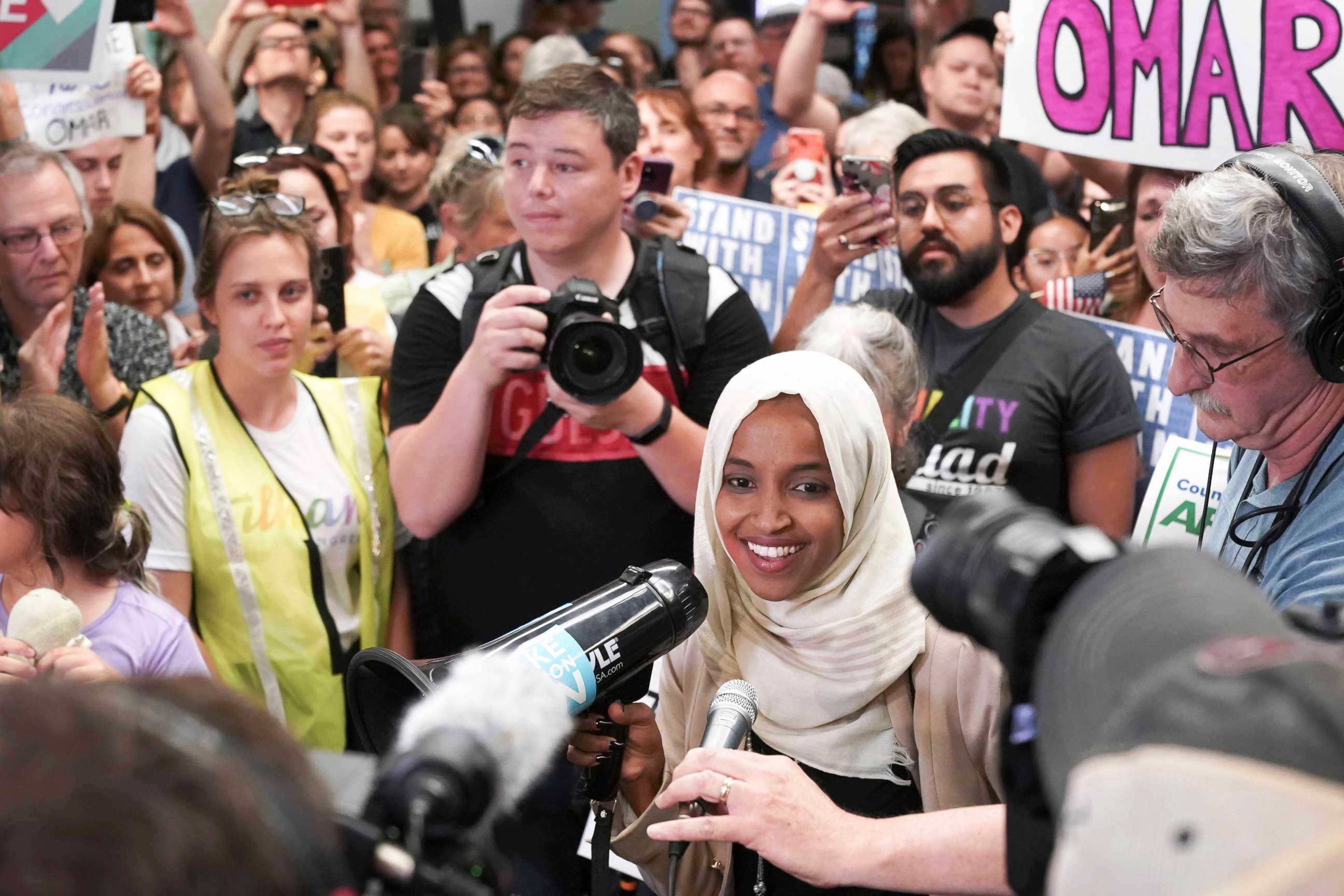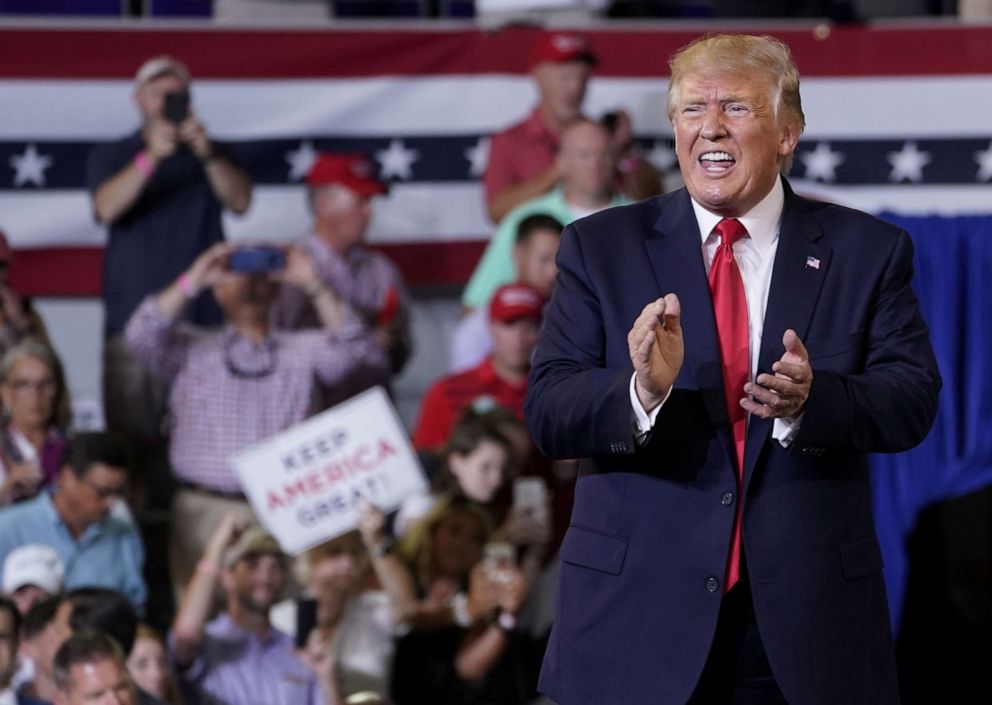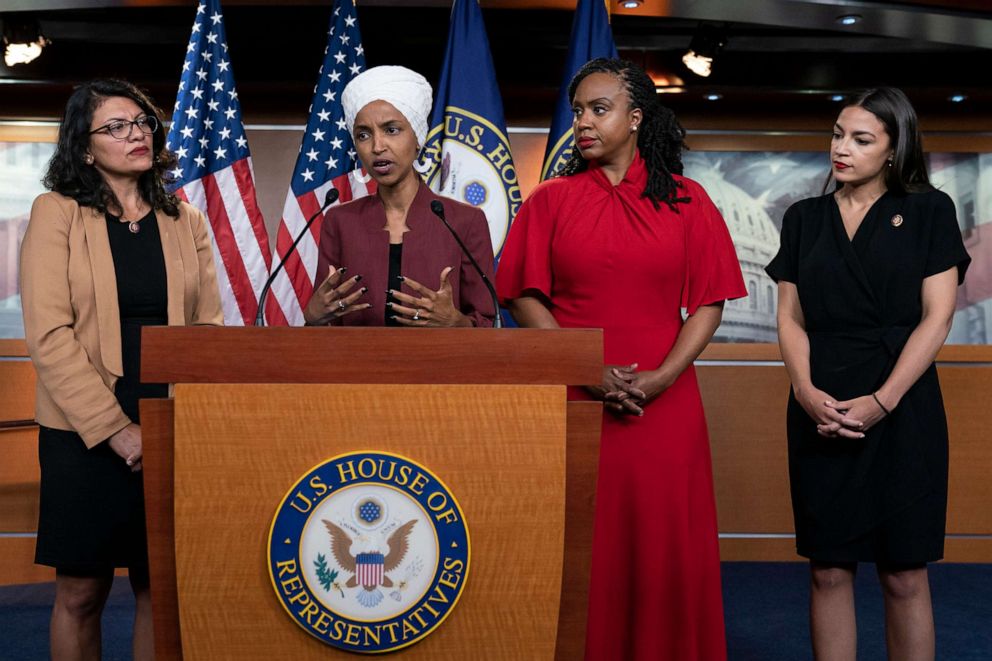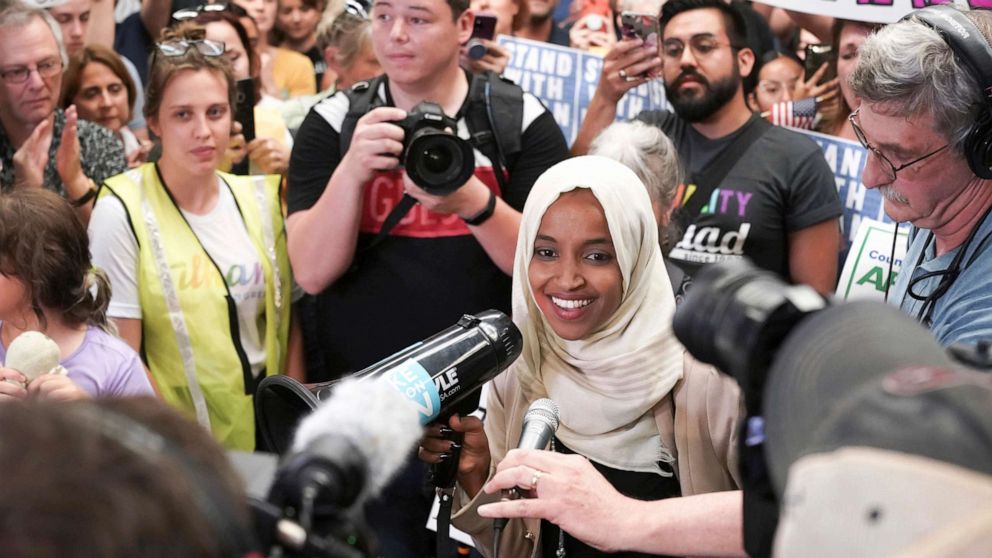Ilhan Omar gets standing ovation at town hall after Trump attacks
Congresswoman Ilhan Omar received a warm welcome back home in Minneapolis Thursday, with supporters cheering her on at the airport and at a health care town hall event after a week of racist attacks from President Donald Trump, who told four Democratic congresswomen of color to "go back " to where they came from, and from supporters at a Trump campaign rally, who chanted "send her back" on Wednesday night.
"I know there are a lot of people that are trying to distract us right now, but we are not going to let them," she said at her "Medicare for All" town hall event with Rep. Pramila Jayapal, D-Wash., after the crowd of 500 constituents and supporters gave her a standing ovation.
"There is no doubt in my mind that we have a great American ... who is shaking up Congress and the United States of America in all the best ways," Jayapal, the author of the House Mediacare for All bill, told the crowd.
More than 100 supporters warmly greeted Omar at the airport. Speaking with a megaphone at baggage claim, Omar teed off on Trump, who attempted to distance himself from his attacks and the cheers at his Wednesday rally.
"Everybody is talking about that he is threatened because we criticize him," she said. "But the reality is that he is threatened because we are inspiring people to dream about a country that recognizes their dignity and humanity."
"We are not deterred, we are not frightened, we are ready," she said. "We are in the ring, we are in the people’s house ... we are going to continue fighting until we have the America we all deserve."

Omar returned home a day after Trump reveled in his feud with the four freshman members, telling the crowd in Greenville, North Carolina: "I said I have a suggestion for the hate-filled extremists who are constantly trying to tear our country down. They never have anything good to say. That's why I say, hey, if they don't like it let them leave. Leave, let them leave."
Three of the women were born in the U.S., and Omar, who came to the U.S. as a refugee when she was a child, has been living in the country since she was 12 years old and is a U.S. citizen. In the 2018 midterm elections, all four women won a popular vote to claim their seats in Congress.
Trump focused on Omar, who was born in Somalia, during the rally, eliciting scattered "send her back" chants from the audience of supporters. The president made no attempt to stop the cheers, though falsely claimed on Thursday that he had attempted to do so and disavowed them.

Omar, who was part of the historic wave of women elected to Congress in 2018, overwhelmingly defeated GOP candidate Jennifer Zielinski for Minnesota's 5th Congressional District seat.
She carried the strongly Democratic district, which sits in the lower eastern region of the state and includes the entire city of Minneapolis, by more than 56 percentage points. In 2016, 73% of voters in the district preferred Hillary Clinton to Trump. Former President Barack Obama also heavily won the district in both 2008 and 2012.
Omar, one of only two Muslim women in Congress, represents a district with a 16% foreign-born population, according to data from the U.S. Census Bureau. Minnesota is home to the largest Somali community, with about 52,333 Minnesotans reporting Somali ancestry in 2017, the second-largest foreign born group in the state. Within the 5th Congressional District, 8% of people report sub-Saharan ancestry, Census data show.

Constituents and supporters at her town hall Thursday night said they were proud of Omar's handling of Trump's attacks.
"I think it’s important we show up in support of Ilhan and also in support of health care," Kava Zawaba, a woman from a neighboring congressional district, told ABC News. "I think she’s incredibly brave."
Musa Said, a city bus driver and constituent who grew up in Trinidad and Sudan, and came to the United States at a young age, called Trump’s attacks "unacceptable" and "racist."
Omar, he said, has handled them "very well" and with "a lot of support."
"She’s fighting for people of lower income, people who have been ignored and who the president has appealed to, but has not delivered," he said.
Kendall Karson contributed to this report.




